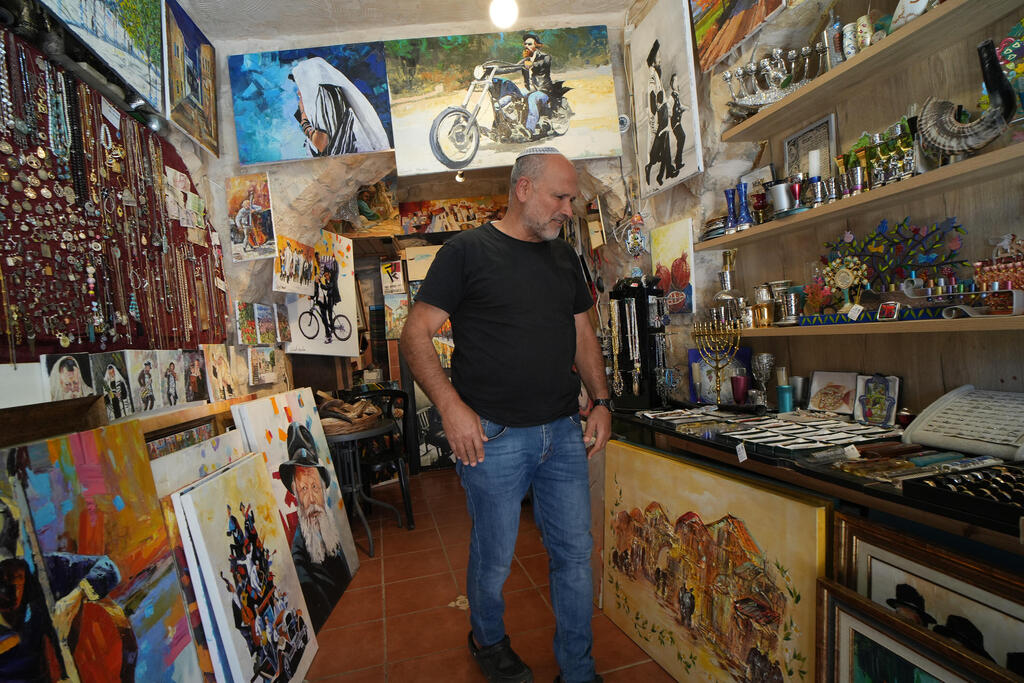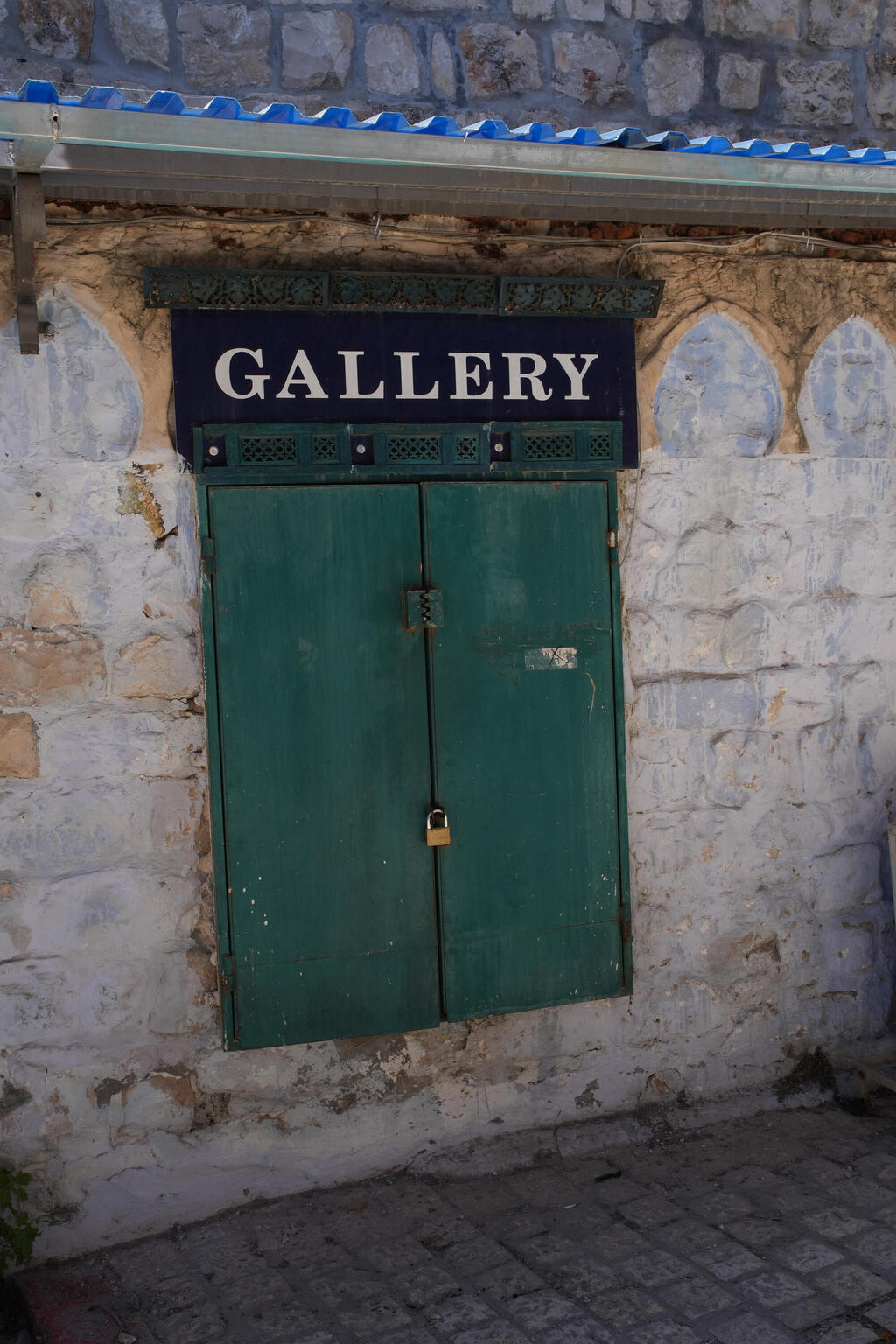Amid the ongoing war and following the decline in tourism after the COVID-19 pandemic, one of Israel's holiest cities remains empty of tourists. Although Safed was beginning to recover economically after COVID, Hezbollah's rockets drove away tourism and commerce away from the city without compensation from the government.
Every morning, for the past eight months, Shimon Peretz opens his Judaica gallery in the heart of the Old City market in Safed, dusts off his fine art pieces, and waits for customers. After about two hours, he stands up, straightens his clothes, closes his books, and leaves without anyone coming in.
"I've been here in the gallery for 15 years and this has never happened," he said. "During COVID, we hardly worked for almost two years, but we received compensation. Now we are not recognized as in need, and the government says it's not their problem that there are no tourists or travelers."
Safed's stores remain closed from the lack of customers and tourists. The business owners hung up signs which read: "We regretfully announce the premature death of Safed's tourism and commerce, which have been forsaken on the battlefield since the days of COVID until now by the State of Israel and the Safed Municipality."
Yossi Kakon, the new mayor of Safed, is fighting for compensation from the government for affected businesses and individuals. Recently, he managed to secure compensation for guesthouses and hotels in his city, but restaurants and galleries were not included, despite being affected by the lack of tourism.
"These businesses can clearly prove that they depend on tourism, and it is unthinkable that they should not be part of the plan. We are fighting for that," Kakon told Ynet.
"My luck is that I own the property of the business," Peretz said. "My only expenses are property tax and electricity. There are businesses here that have damages of 20,000-30,000 shekels every month and still pay rent." In the past month, he has only earned 3,000 shekels from a few tourists. "In previous years, I could have earned 40,000 or 60,000 shekels," he said. "I hope that when the government can, they will compensate us."
Even the Canaan Gallery in Safed's Old City is closed. When we entered the courtyard, Shalom Elad emerged from the second floor. He has worked here for five years at the ancient weaving factory, creating exquisite prayer shawls and scarves. Prices for items range from $900 to $1,600.
"Do you hear this silence? This is what has been heard here in the past eight months," he said. "Sometimes we hear the sirens from Meron, and I rush to the roof to photograph the intercepts. There are 300 meters of galleries here in different seasons that are so full that you can't move. Everything is deserted now. Now almost all the stores here are closed."
After the war broke out, Elad took some time off, but later he returned to work at the factory. "The owner decided to keep me because, if the place closes, it's a victory for our enemies," he explained. The woven prayer shawls factory, according to him, has experienced a 95% drop in income.
"Our luck is that we have customers from all over the world who order online," he said. "We sent them emails and asked them to help us find new customers to survive until the situation improves."





